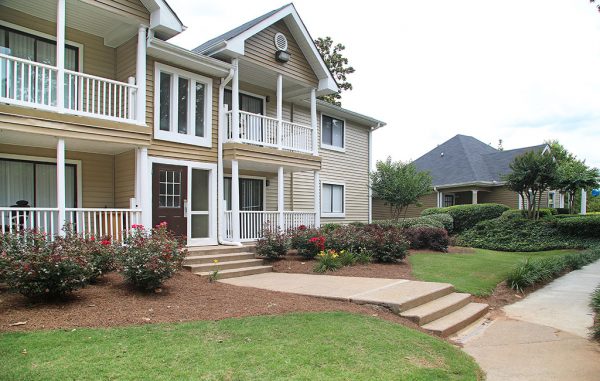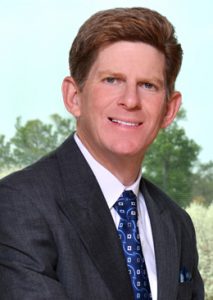Capping off a busy May, a local real estate investment firm is now armed with its first-ever dose of private equity backing.
Capital Square 1031, which purchases commercial real estate and then sells shares of ownership in each property to pools of investors looking to cash in on so-called 1031 exchanges, last month took on a $10 million investment from New York-based Turning Rock Partners.
Capital Square CEO Louis Rogers said the deal is a new avenue of funding for the 6-year-old, Innsbrook-based company, which historically relied on bank loans to acquire properties.
“Turning Rock gives us a cushion to buy more and bigger properties and a little bit faster,” Rogers said. “Right now our pipeline (of potential deals) is $100 million and we now have the capital to close that pipeline.”
Specific terms of the deal were not disclosed, including the amount of equity Capital Square exchanged for the funds. Rogers said it’s a form of redeemable equity, whereby the company can buy its way out after a year or continue on for an extended term.
The company and its investors now own 67 properties across the U.S., valued at a combined $670 million. They include a mix of apartment complexes, office buildings, trailer parks and retail buildings.
It closed several acquisitions and investor pools in May for two apartment complexes in Georgia, a portfolio of nine medical office buildings in five states all leased to dialysis provider Fresenius Medical Care, and a laboratory office building in Florida.
It paid a total of $85.35 million for its last five property acquisitions.
The 1031 exchange process allows investors to reinvest the proceeds from previously sold properties without paying capital gains taxes.
Capital Square’s investors – all accredited – get a check every month on their share of the property from tenants’ rent payments. The company charges an acquisition fee to investors and an asset management fee typically paid by the tenant.
Rogers said the company is particularly hungry for apartment complexes at the moment.
“Multifamily properties have been on a tear,” he said. “Aging baby boomers looking for an investment believe that apartments are going to perform better than anything else – and they are.”
He said the company is looking for properties all over the U.S., with a focus on Texas and Florida because of their lack of state income tax.
Beyond taking its first dose of private equity money, the company is aiming for another first this year – selling off some properties.
Rogers said the typical holding period for properties owned by exchange pools averages seven to 10 years. Because Capital Square was founded in 2012, it hasn’t yet had a chance to sell off any real estate.
That step would allow the firm to test the full breadth of its business model, which Rogers said is to “pay a nice stable return and then return the capital to investors who will do another exchange and reinvest with you if you’ve done a good job.”
“This year we should have at least three substantial properties that sell,” he said.
Disposing of properties is a sign of the 30-person firm continuing to grow up, which the Turning Rock deal will help with, Rogers said.
“Beyond the money, they’ve helped us identify areas where the company could be better, more institutional. They are helping to smooth out some of the rough edges we have as a young entrepreneurial company.”
Capping off a busy May, a local real estate investment firm is now armed with its first-ever dose of private equity backing.
Capital Square 1031, which purchases commercial real estate and then sells shares of ownership in each property to pools of investors looking to cash in on so-called 1031 exchanges, last month took on a $10 million investment from New York-based Turning Rock Partners.
Capital Square CEO Louis Rogers said the deal is a new avenue of funding for the 6-year-old, Innsbrook-based company, which historically relied on bank loans to acquire properties.
“Turning Rock gives us a cushion to buy more and bigger properties and a little bit faster,” Rogers said. “Right now our pipeline (of potential deals) is $100 million and we now have the capital to close that pipeline.”
Specific terms of the deal were not disclosed, including the amount of equity Capital Square exchanged for the funds. Rogers said it’s a form of redeemable equity, whereby the company can buy its way out after a year or continue on for an extended term.
The company and its investors now own 67 properties across the U.S., valued at a combined $670 million. They include a mix of apartment complexes, office buildings, trailer parks and retail buildings.
It closed several acquisitions and investor pools in May for two apartment complexes in Georgia, a portfolio of nine medical office buildings in five states all leased to dialysis provider Fresenius Medical Care, and a laboratory office building in Florida.
It paid a total of $85.35 million for its last five property acquisitions.
The 1031 exchange process allows investors to reinvest the proceeds from previously sold properties without paying capital gains taxes.
Capital Square’s investors – all accredited – get a check every month on their share of the property from tenants’ rent payments. The company charges an acquisition fee to investors and an asset management fee typically paid by the tenant.
Rogers said the company is particularly hungry for apartment complexes at the moment.
“Multifamily properties have been on a tear,” he said. “Aging baby boomers looking for an investment believe that apartments are going to perform better than anything else – and they are.”
He said the company is looking for properties all over the U.S., with a focus on Texas and Florida because of their lack of state income tax.
Beyond taking its first dose of private equity money, the company is aiming for another first this year – selling off some properties.
Rogers said the typical holding period for properties owned by exchange pools averages seven to 10 years. Because Capital Square was founded in 2012, it hasn’t yet had a chance to sell off any real estate.
That step would allow the firm to test the full breadth of its business model, which Rogers said is to “pay a nice stable return and then return the capital to investors who will do another exchange and reinvest with you if you’ve done a good job.”
“This year we should have at least three substantial properties that sell,” he said.
Disposing of properties is a sign of the 30-person firm continuing to grow up, which the Turning Rock deal will help with, Rogers said.
“Beyond the money, they’ve helped us identify areas where the company could be better, more institutional. They are helping to smooth out some of the rough edges we have as a young entrepreneurial company.”




